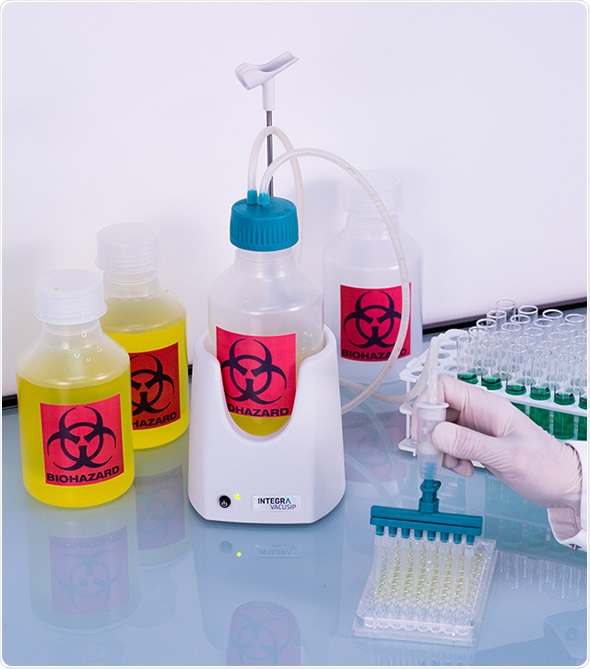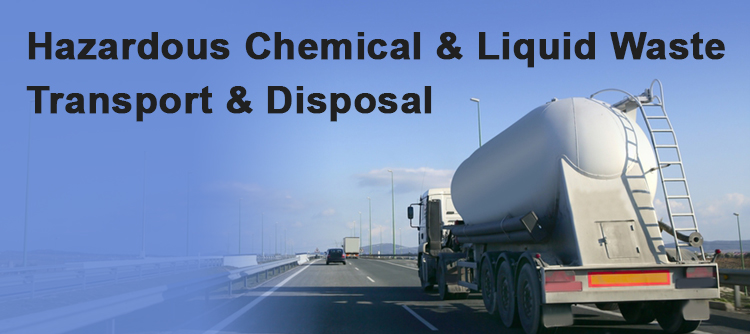Comprehending the Comprehensive Process of Fluid Garbage Disposal: Best Practices and Environmental Influence Considerations
The administration of liquid waste disposal is a multifaceted issue that requires an extensive understanding of different best practices and their linked ecological effects. From the kinds of fluid waste produced to the techniques employed for collection, therapy, and final disposal, each step plays a critical duty in securing environments and public health. As regulatory criteria develop and technology advances, the discussion around these processes comes to be progressively important. What implications do these adjustments hold for future sustainability efforts, and just how can stakeholders make sure that they are sufficiently addressed?
Types of Fluid Waste
Understanding the different kinds of liquid waste is important for reliable management and disposal practices. Fluid waste can be extensively classified into a number of kinds, each requiring one-of-a-kind handling and treatment strategies.
Industrial fluid waste typically has dangerous products, consisting of hefty steels, solvents, and chemicals, produced during producing procedures. These wastes demand rigorous regulatory compliance to safeguard human health and wellness and the setting. Residential fluid waste mainly refers to wastewater generated from homes, consisting of sewer and greywater, which, although much less toxic, can still position considerable dangers if poorly taken care of.
Agricultural fluid waste, consisting of drainage from ranches, commonly consists of plant foods and chemicals that can bring about ecological destruction otherwise dealt with sufficiently. Clinical liquid waste, produced from health care facilities, includes infected liquids such as physical liquids and chemicals, needing specialized disposal techniques to stop infection and ecological contamination.
Finally, oil and grease waste, usually created by restaurants and automotive industries, can trigger serious blockages in sewer systems otherwise taken care of properly. Comprehending these groups promotes targeted techniques for treatment, conformity with regulations, and reliable disposal approaches, ultimately advertising ecological sustainability and public health security.

Collection Techniques
Reliable collection techniques are crucial for the correct monitoring of liquid waste, making certain that it is gathered safely and efficiently prior to treatment or disposal. Numerous methods are employed relying on the sort of fluid waste generated, the quantity, and the specific attributes of the waste.
One common technique is the use of specialized collection tanks or sumps, which are created to capture fluid waste at the resource. These systems typically incorporate pumps that assist in the transfer of waste to bigger storage containers or therapy centers. Furthermore, mobile collection devices equipped with vacuum modern technology are employed in circumstances where waste is created intermittently or in hard-to-reach places.
For commercial settings, closed-loop systems can successfully minimize leakages and spills, enabling for the healing and reuse of fluid waste. It is also vital to educate personnel on proper collection procedures to minimize threats associated with harmful materials.
Additionally, applying regular maintenance routines for collection devices makes certain optimal performance and security. The assimilation of advanced monitoring systems can improve collection effectiveness by giving real-time data on waste levels and prospective dangers. Overall, efficient collection approaches are fundamental to lasting liquid waste monitoring techniques.
Treatment Processes
Treatment processes play a crucial duty in the management of liquid waste, transforming possibly hazardous materials into recyclable resources or secure effluents - liquid waste disposal. These processes can be extensively categorized into physical, chemical, and biological methods, each customized to resolve details impurities existing in the waste stream
Physical treatment methods, such as sedimentation and filtration, job by getting rid of put on hold solids and particulate issue. These strategies are usually the initial step in the treatment chain, effectively reducing the lots on subsequent processes. Chemical therapies include using reagents to counteract dangerous compounds, speed up hefty metals, or oxidize organic pollutants, thus enhancing the safety of the effluent.
Biological therapy procedures, including turned on sludge internet systems and anaerobic digestion, capitalize on the all-natural capabilities of bacteria to degrade organic matter. These methods are specifically efficient for wastewater including biodegradable pollutants. Advanced treatment modern technologies, such as membrane layer purification and advanced oxidation procedures, are increasingly utilized to attain greater levels of purification.
Integrating a mix of these treatment methods not only makes certain compliance with regulatory requirements yet additionally promotes environmental sustainability by recuperating useful sources from liquid waste.
Disposal Options
How can organizations make sure the responsible and safe disposal of liquid waste? Efficient disposal choices are critical for safeguarding public health and the environment. The primary techniques include land treatment, disposal, and incineration complied with by discharge into community wastewater systems.
Land disposal includes the cautious containment of liquid waste in designated landfills, ensuring that it does not leach right into bordering dirt or water. Incineration, on the various other hand, subjects liquid waste to heats, converting it into ash and gases, which require appropriate filtration to minimize exhausts. This method is appropriate for harmful wastes that can not be treated through traditional means.
In instances where liquid waste can be dealt with, companies may opt for chemical or organic therapy processes to neutralize harmful parts prior to discharging the dealt with effluent right into community systems. This route typically straightens with regulative requirements, ensuring that the effluent fulfills security standards.
Inevitably, organizations must perform detailed evaluations of each disposal option to establish its practicality, considering aspects such as waste structure, regulatory conformity, and potential threats to health and the setting. By choosing appropriate disposal techniques, businesses can add to an accountable waste management method.
Environmental Effect
The ecological impact of liquid waste disposal is an important factor to consider for organizations seeking to lessen their eco-friendly impact. In addition, the discharge of untreated or inadequately treated waste into surface waters can result in eutrophication, leading to oxygen exhaustion and the subsequent death check over here of fish and other organisms.

To reduce these impacts, organizations must take on ideal methods such as carrying out extensive waste treatment processes, advertising recycling and reuse, and sticking to regulative criteria. By taking a positive technique to fluid waste management, entities can dramatically lower their environmental footprint while sustaining sustainable development objectives. Eventually, a thorough understanding of the environmental impacts related to liquid waste disposal is essential for educated decision-making and accountable stewardship of natural deposits.
Conclusion
Efficient monitoring of fluid waste is critical for guarding environmental honesty and public health reference and wellness. Eventually, a thorough understanding of fluid waste disposal not just minimizes ecological effects but additionally fosters a dedication to responsible resource monitoring and environmental stewardship.
The management of fluid waste disposal is a multifaceted issue that requires a comprehensive understanding of numerous finest practices and their associated environmental impacts. From the kinds of fluid waste produced to the methods employed for collection, therapy, and last disposal, each step plays a crucial function in securing ecosystems and public health.The environmental impact of liquid waste disposal is a crucial consideration for organizations seeking to minimize their ecological impact. Inevitably, a thorough understanding of the ecological effects connected with liquid waste disposal is important for informed decision-making and responsible stewardship of all-natural sources.
Eventually, a detailed understanding of liquid waste disposal not only minimizes ecological effects but also cultivates a dedication to accountable resource monitoring and ecological stewardship.